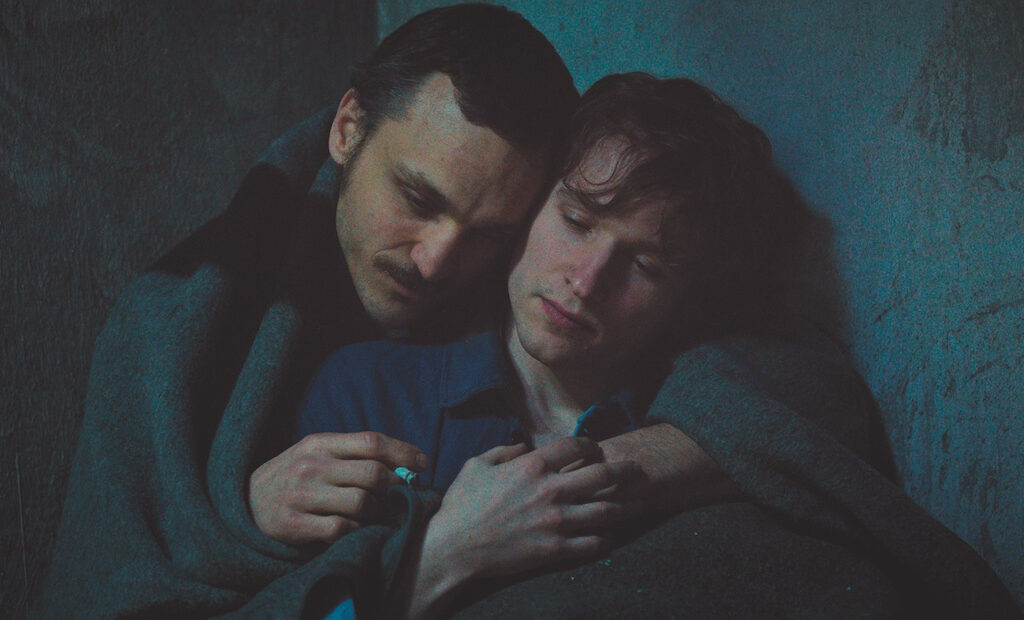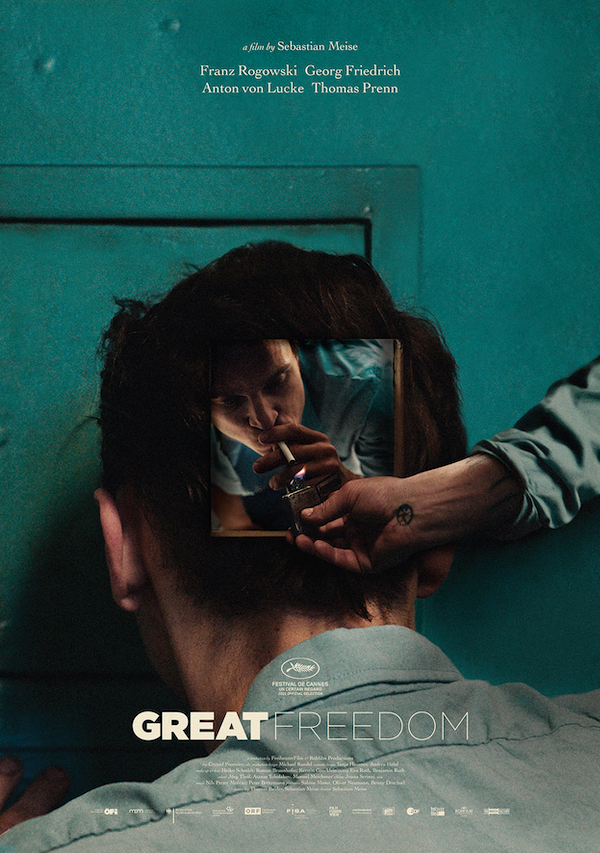Great Freedom (Die Grosse Freiheit)

Only a couple of weeks ago, during the European Championships, Germany’s goalkeeper was investigated by UEFA for wearing a rainbow captain’s armband; then the association banned Munich from illuminating their stadium in the colours of the LGBT flag. During this “rainbow debate” a number of critical voices have called for Germany to first address its history with Paragraph 175 (the section of the German penal code criminalising homosexuality, only officially abolished in 1994), before claiming a title as gay rights crusaders.
Great Freedom might just be the film to get the ball rolling. The German-Austrian production follows three incarcerations of Hans Hoffmann (Franz Rogowski) throughout his life, the first one particularly gut-wrenching: the continuance of his sentence at a concentration camp. Director Sebastian Meise’s third feature explores the historical discrimination of homosexuality, the homosociality in a men’s prison, and the cruel fate of being a pariah amongst pariahs.
Over the opening credits viewers see super-8 footage from a hidden camera in a bathroom stall, used to convict Hoffmann of improper conduct with other men. At a later stage, a happy memory of a day at the lake with his partner is recalled through images Hans shot that day. The rest of the film is almost exclusively set inside the prison, confining not only the characters but the audience as well. Hans’s dismal everyday life, with its gruelling routines of work and yard time, is topped off with occasional stints in solitary confinement.
Initially harassed and threatened by his Austrian cellmate Viktor (Georg Friedrich), the two men eventually form an unlikely friendship. Through the 25-ish years one witnesses of Hans’s journey, it is the only bond the man can hold onto.
The cast is the stuff of dreams: the rugged charm of Franz Rogowski, who resembles James Dean in the segment set in the 1950s, spins the perfect balance against the tightrope of vulnerability and pride that Rogowski as Hans inhabits; Georg Friedrich’s signature Viennese “grump” adds another level of authenticity to these unpolished and marked characters.
The dialogue is not bogged down by immaculate enunciation, nor the script flooded with exposition. Despite the heavy subject matter, this film is a breath of fresh air in the European film scene.
Selina Sondermann
Great Freedom (Die Grosse Freiheit) does not have a UK release date yet.
Read more reviews from our Cannes Film Festival 2021 coverage here.
For further information about the event visit the Cannes Film Festival website here.


























Facebook
Twitter
Instagram
YouTube
RSS